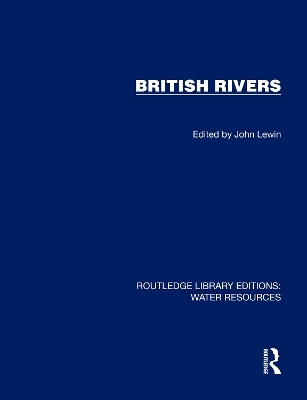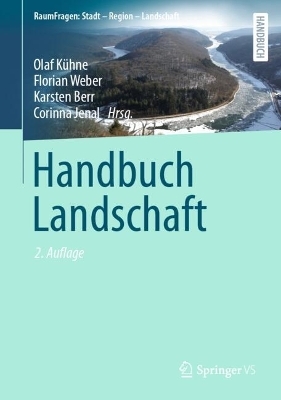
British Rivers
Routledge (Verlag)
978-1-032-73557-3 (ISBN)
John Lewin is Emeritus Professor at Aberystwyth University, UK, having also become Dean of Science and then Vice Principal & Pro-Vice-Chancellor at Aberystwyth in the more than forty years that have passed since British Rivers was first published. He continues with publishing research on rivers and floodplains, now taking advantage of new techniques that have become available on a global scale. This now includes work on the world's largest rivers, but also on human impacts such as from historic settlement, mining and recent vegetation changes in Britain. He is an Honorary Fellow of the Royal Geographical Society. Rob Ferguson is emeritus Professor of Physical Geography at Durham University. His BA and PhD were completed at Cambridge and he held academic posts in the Universities of Hull, Stirling and Sheffield before Durham. His research focused initially on river channel morphology and channel change. These form the subject of his chapter in this book, and his emphasis therein on the importance of stream power has been influential. His later work includes many highly-cited contributions on flow and sediment transport processes in rivers using various combinations of physical theory, numerical modelling and data analysis. Malcolm Newson has fifty years’ experience in research and applications in hydrology, fluvial geomorphology and freshwater/wetland conservation. He has completed 90 consultancy reports in addition to an academic output of 200 refereed papers and eight books. He is co-author of the Guidebook of Applied Fluvial Geomorphology. His particular expertise is ‘hydromorphology’, combining his research in hydrology and geomorphology in a little understood field of knowledge but one which is pivotal to the Water and Habitats Directives as well as to freshwater ecosystems (including their restoration and rehabilitation) and the impacts of climate change, notably severe floods. Bruce Webb studied Geology and Geography and undertook his doctoral research on water chemistry in the Department of Geography, University of Exeter, where he spent his subsequent academic career. His research interests lay primarily in the field of water quality, latterly with a particular focus on the thermal behaviour of stream and river systems, but he also studied sediments, particulate-associated substances, nutrients and general chemistry in rivers. His work encompassed methods for estimating fluvial fluxes of sediments and chemical substances as well as the impact of changing water quality on stream ecology occasioned by changes in climate and land-use. He is the author and editor of over 140 books, journal articles and research reports, and during his career, he served as Secretary and President of the International Association of Hydrological Sciences International Commission on Water Quality and Secretary and President of the British Hydrological Society. He retired from the University of Exeter in September 2011. Des Walling retired from the Geography Department at Exeter University in 2010. He has devoted decades of work to catchments and rivers in the UK but also extended his work to include studies in contrasting environments across the globe. He has served as President of the International Commission on Continental Erosion, the International Association for Sediment Water Science and the World Association for Sedimentation and Erosion Research. He was awarded the Victoria Medal of the Royal Geographical Society in 2000, the Linton Award of the British Society for Geomorphology in 2007, The International Hydrology Prize awarded by the International Association of Hydrological Sciences, UNESCO and WMO in 2007 and the AGU Hydrologic Sciences Award in 2008. He has published widely and in 2023 he was ranked 10th in the world for Geography scholars by ScholarGPS, based on productivity, impact and the quality of his publications.
1. Water Planning 2. The Water Planning System 3. Planning Water Supplies 4. Effluent Disposal and Pollution Control 5. Planning Water for Recreation and Amenity 6. Land Drainage and Flood Alleviation 7. The Political Character of Water Planning.
| Erscheinungsdatum | 06.04.2024 |
|---|---|
| Reihe/Serie | Routledge Library Editions: Water Resources |
| Verlagsort | London |
| Sprache | englisch |
| Maße | 189 x 246 mm |
| Gewicht | 580 g |
| Themenwelt | Naturwissenschaften ► Geowissenschaften ► Geografie / Kartografie |
| Technik ► Umwelttechnik / Biotechnologie | |
| ISBN-10 | 1-032-73557-0 / 1032735570 |
| ISBN-13 | 978-1-032-73557-3 / 9781032735573 |
| Zustand | Neuware |
| Haben Sie eine Frage zum Produkt? |
aus dem Bereich


